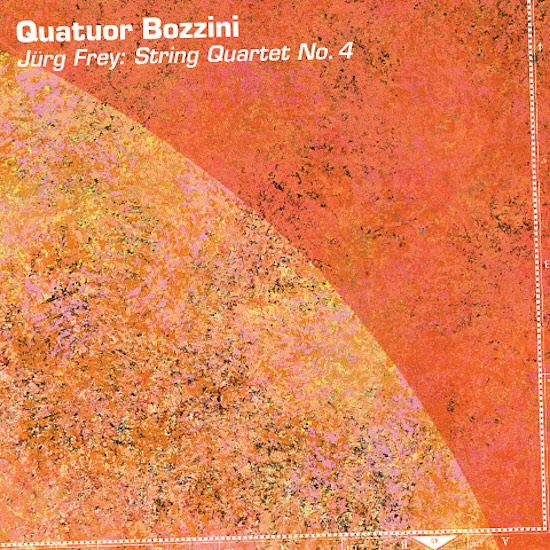In Jürg Frey’s world, stillness is motion. Throughout the Swiss composer’s String Quartet No. 4, Quatuor Bozzini pull their bows so gradually that it feels as if each note is stopped in time. Yet they aren’t: With each reiteration, these tones gradually expand, taking up every inch of the quartet’s wooden instruments. Each slight change feels faint, but they accumulate; it’s like the shifting of a glacier over thousands of years. This is the world Frey has come to embody across his career, and his fourth string quartet continues to explore the engulfing atmospheres he crafts out of thin air.
Quatuor Bozzini, a Montréal-based string quartet that comprises violinists Alissa Cheung and Clemens Merkel, violist Stéphanie Bozzini, and cellist Isabelle Bozzini, are expert interpreters of Frey’s conscientious works. The group has a twenty-year relationship with the composer. His second string quartet was also written for and recorded by them. First performed in a virtual premiere in 2021, the five-movement fourth quartet often deals in similar swaths as the second, venturing from moments of delicacy to broader, more expansive harmonies. But here, Frey allows the music to feel a little rougher around the edges. Each chord basks in its dissonances and a cloudy haze circles around every whispered note.
While Frey often writes diaphanous music, the most striking moments of String Quartet No. 4 lean into bold dissonances. Though the piece opens in wisps, it blooms into piercing tones that interweave and clash. The quartet plays every hushed phrase with great attention to detail, but they shine in these moments of resonance, letting them hang wherever they are, even if they never resolve. Each note spirals into the next, giving the feeling of motion and standstill all at the same time. It’s similar to the way Frey’s most hushed sounds feel, yet amplified and expanded.
But it’s when Frey’s music returns to quietude, that his world feels most intimate. Here, each moment invites close listening to the tiniest flutters. Towards the end of the piece, there are a series of rests that feel one in the same as the moments of sound; it ends where it began, emerging from nowhere and disintegrating into a pool of dust. Of the quartet, Frey writes: “Standstill, little happens – it is this atmosphere from which my music emerges and to which it always returns.” Music can be found where it might not have existed before, and Frey invites us to discover it with him.


